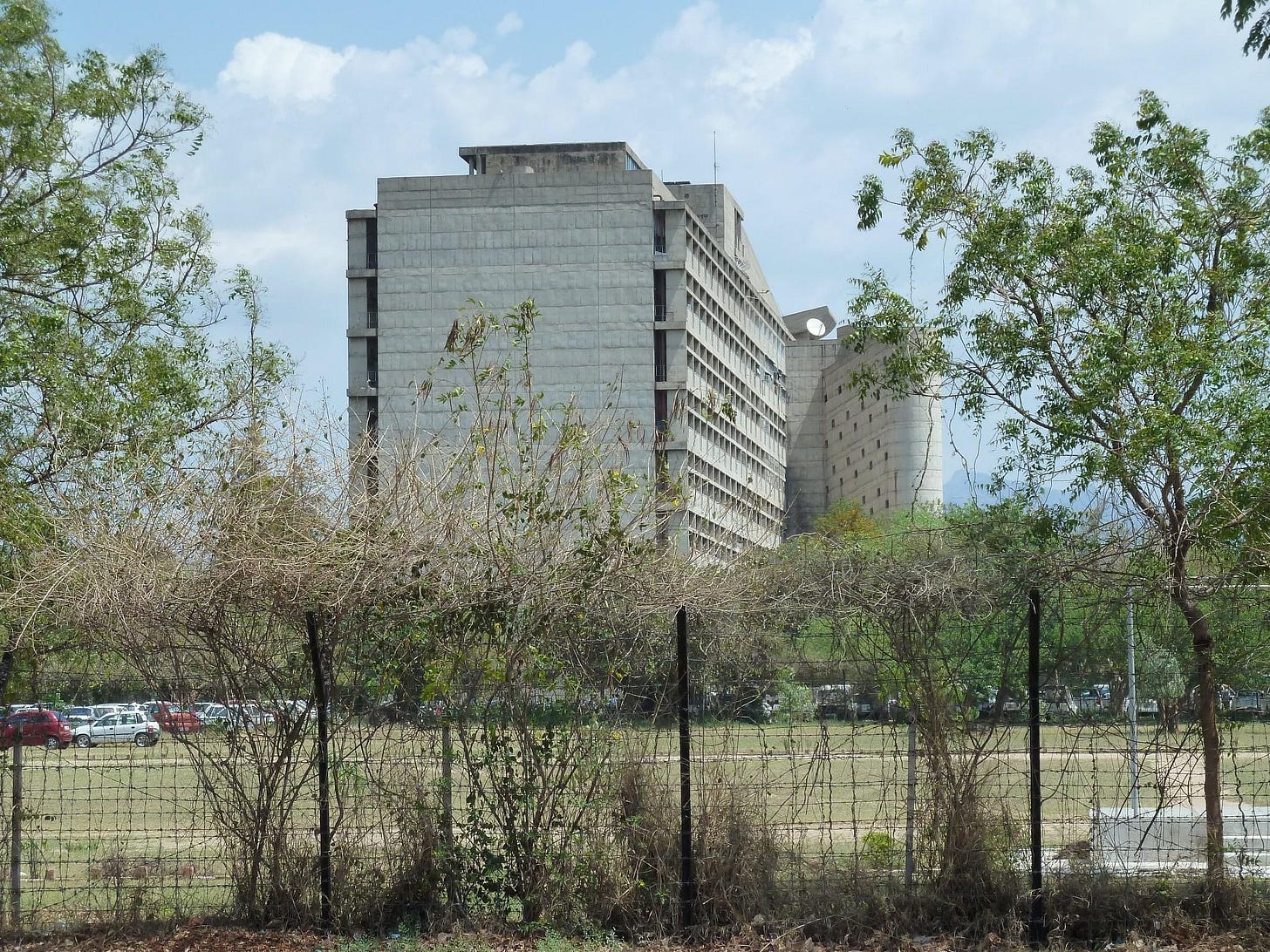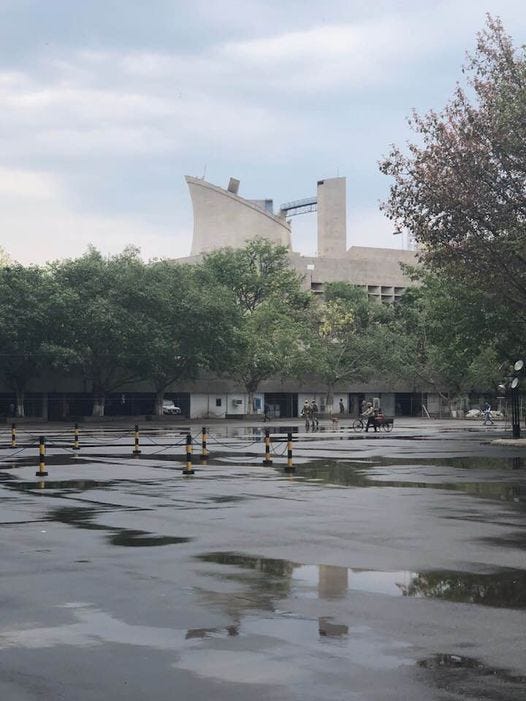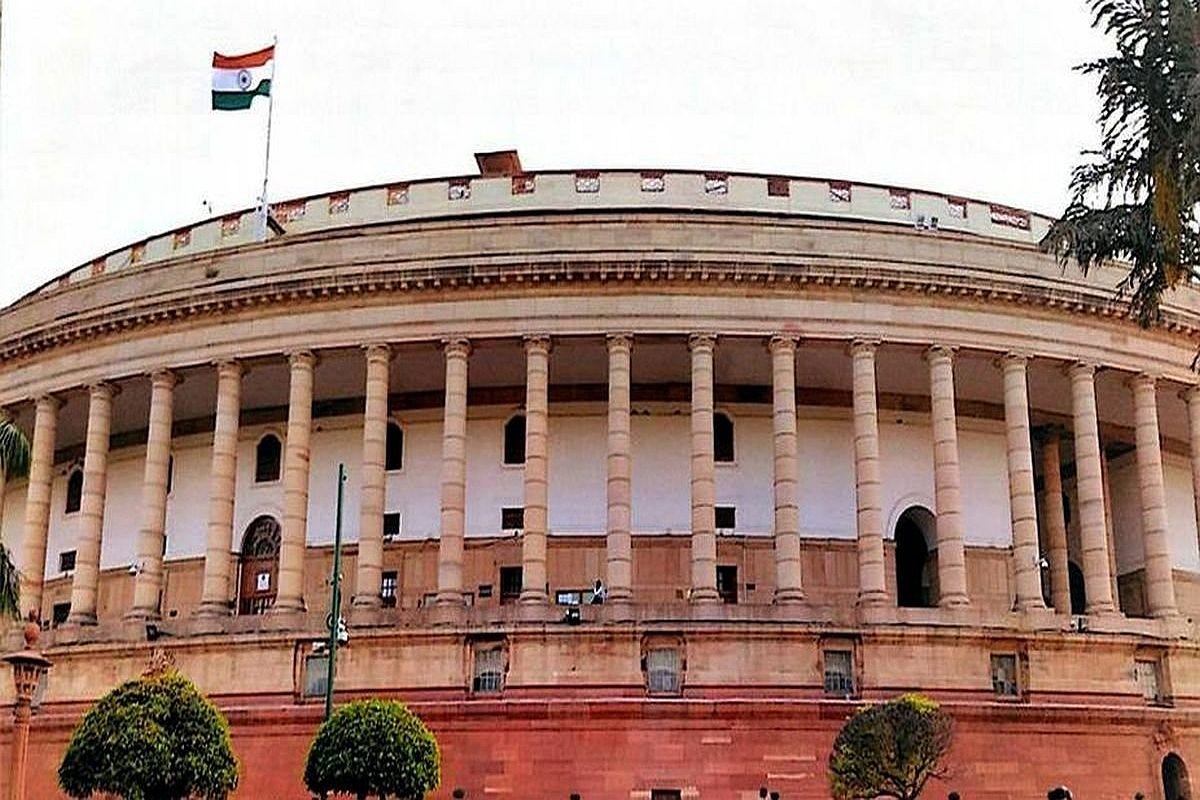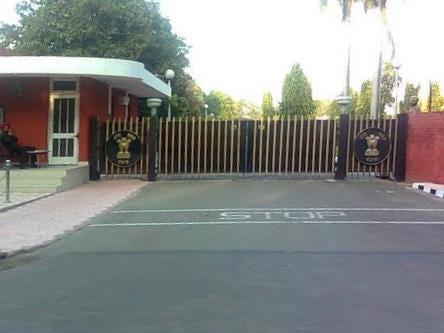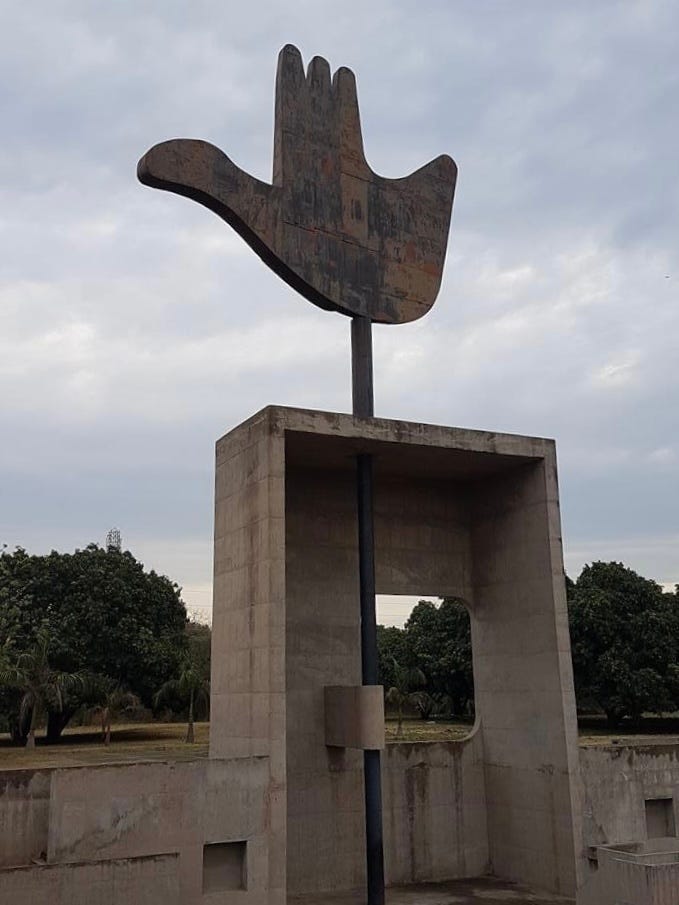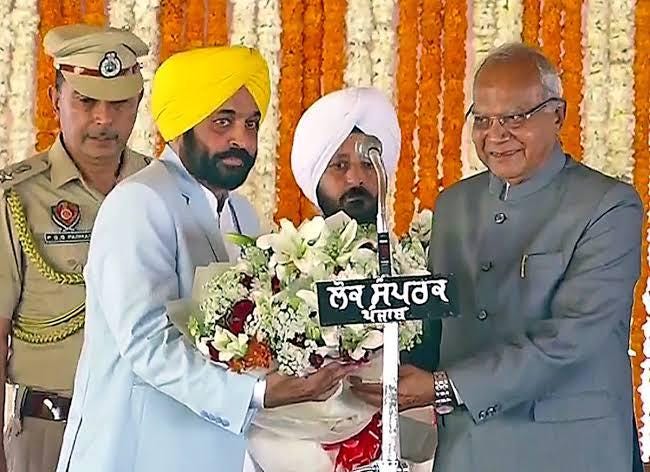Punjab Governance: Lessons from the Suspension Saga of IAS Officers.
Suspension of IAS Officers in Punjab:The Balancing Act— Political Responsibility and Bureaucratic Accountability.
The Intricacies of the IAS Suspensions: Not Just a Punjab Affair
The suspension of two senior Punjab Cadre IAS officers – the Financial Commissioner and the Director of Rural Development and Panchayats Department – has sent shock waves through the state bureaucracy. This event has also triggered a debate in both political, official as well as academic circles about the intricate relationship and balance between the responsibilities of the political executive and the accountability of civil servants.
Let's make one thing clear at the outset: this is an academic article designed to explore the issue from various angles. We are not here to either praise or appraise the Punjab Government's decision, in retrospect. Likewise, the objective is not to defend or denigrate the officers involved. Instead, we wish to delve into the various implications of such decisions. While the immediate context may be Punjab, the principles discussed here are broadly applicable elsewhere.
Understanding the Legal and Procedural Nuances
The suspension order in question adheres to standard practice by omitting to mention specific reasons. It's crucial to underscore that suspension is not inherently punitive. Although society often views it as “stigmatic”, it essentially serves as a precursor to departmental proceedings for serious alleged lapses in duty.
The President of India is the appointing authority for all IAS officers, irrespective of their state cadre. This highlights the interplay between state and central governance in disciplinary matters. Statutory rules permit the State Government to initiate a suspension. However, this action is contingent upon either launching disciplinary proceedings (evidenced by a departmental charge-sheet) or receiving confirmation from the Central Government within 30 days. Failure to meet these criteria within the stipulated time-frame will result in the automatic lapse of the suspension order1.
Although no official record or press statement was made public, various media sources have indicated that the suspensions were closely connected to previous plans regarding the dissolution or supersession of Gram Panchayats across Punjab. This decision had been viewed as setting the stage for upcoming general elections in these Panchayati Raj Institutions (PRIs), anticipated to occur within the following six months. The Rural Development and Panchayats Department had put forth a proposal to dissolve all existing Gram Panchayats and to install government officials as temporary administrators. This arrangement was intended to serve as a provisional measure until the general elections could be conducted, under the aegis of the State Election Commission—an independent constitutional body.
The Legal Conundrum and Political Intricacies
The proposal to dissolve Gram Panchayats and appoint administrators was recommended by both the suspended IAS officers, based on an office note. The recommendation climbed the chain of command, receiving the formal approval of the Chief Minister after being routed through the Cabinet Minister responsible for this portfolio. Subsequently, an executive notification was issued to implement the decision.
However, this executive order was swiftly challenged in a civil writ petition filed in the Punjab and Haryana High Court. The court responded by issuing a notice of motion to the Punjab Government. As widely reported in the media, the Advocate General of Punjab, appearing before the court, submitted that the Government intended to withdraw the contentious notification. The writ petition was subsequently dismissed as infructuous, given that the point in question had been rendered moot.
It is also widely believed that the Advocate General— himself a constitutional authority—had briefed the top political brass, advising that defending the notification was unfeasible. It was deemed that the only available course of action was to withdraw or revoke the impugned notification.
The Consequences and Ethical Considerations
The withdrawal of the notification was touted by opposition parties as a kind of mini-victory, and quite naturally, it led to a degree of embarrassment for the State Government. This sequence of events may well have been the seed crystal for the Government to suspend the two senior IAS officers involved in the decision-making process.
While political factors and the speed of governmental decisions are undoubtedly critical elements, it's essential to underline the role of senior civil servants in such matters. These individuals have a moral and constitutional responsibility to assess both the legality and constitutional validity of the decisions they are involved in, or as in this case, specifically recommending.
Decision-making in a democracy, especially for members of the civil service, is not solely about expediency or catering to instantaneous political priorities. Rather, it's a balanced act that requires the understanding and application of laws and the Constitution, for which they are specially trained. The foundational guidelines for such a responsibility are delineated by Article 312 of the Constitution of India. This article establishes the All India Services as a cornerstone for upholding the rule of law and ensuring effective governance. It's important to note that once a decision is made by the democratically elected political executive, civil servants are obligated to implement it diligently, regardless of any personal opinions they may have documented on official files.
Constitutional Amendments and the New Terrain for PRIs
Post the seminal 72nd and 73rd Constitutional amendments during the Rajiv Gandhi era, Panchayati Raj Institutions (PRIs) have undergone a transformation. They are no longer mere statutory bodies at the mercy of state laws, subject to dissolution at the sweet will of the government of the day. Today, these institutions enjoy constitutional status, which protects them from arbitrary dissolution. If administrative or public interest necessitates their supersession, a legislative amendment would, in all probability, be required. Furthermore, fresh elections must be held within a six-month timeframe.
The legislative landscape for Panchayati Raj Institutions has also evolved. In Punjab, they are now governed by a single consolidated act—the Punjab Panchayati Raj Act, 1994. In this changed scenario, anyone well-versed in the legal intricacies of Gram Panchayats would assert that these institutions can no longer be dissolved by a mere executive notification. Legislative action, either through a Bill passed in the Vidhan Sabha or via an ordinance, would be essential. Either route would necessitate the assent of the Governor of Punjab. This episode brings into focus the crucial role senior civil servants play in not only understanding the current laws but also the weighty constitutional implications of their decisions and proposals.
The Cost of Bypassing Legal Procedures
Given past experiences where the Hon’ble Governor did not readily assent to Bills and Ordinances, the Government might have considered sidestepping the legislative route in favour of an executive notification. Whether this bypass was vetted by the Legal Remembrancer or the Advocate General remains unclear, but the fact remains that the notification was later found to be legally indefensible when challenged in court.
Disciplinary Action or Scapegoating? It’s repercussions
A few stakeholders have expressed the view that the suspended officers may have been unfairly blamed for a government decision that did not go as planned. Consistent with its typical approach, the Punjab IAS Officers Association has maintained a deliberate silence on the matter. The affected officers have also refrained from any public comment. However, the incident has spurred a cautionary response within the bureaucratic circles. Officers are now contemplating a more conservative approach in decision-making, preferring to refer even routine matters to relevant departments such as Finance, Personnel, and Legislative Affairs. The climate seems to be shifting from one of innovative problem-solving to defensive administration, all within the bounds of existing law.
Such a shift has its own set of ramifications, which go beyond the immediate repercussions for the suspended officers. It ultimately trickles down to affect the efficacy of governance and public service delivery, areas in which senior civil servants like IAS officers are supposed to excel.
Lessons for Stakeholders: A Balanced Approach
Amidst the clamour from opposition parties, which seem more interested in political gains than substantive critique, it's worth considering the lessons that can be drawn by each stakeholder involved in this episode.
For the political executive, two pieces of advice stand out. One echoes the words of Sir Humphrey Appleby from the iconic BBC series "Yes, Minister": "It takes longer to do things quickly." Hasty decisions, though tempting, can often lead to unintended consequences that necessitate even more time and effort to rectify. Secondly, a culture that encourages bureaucratic yes-manship, while perhaps yielding short-term gains, can result in poor, uninformed decisions that embarrass the government in the long run. Therefore, fostering open and candid input from civil servants should be encouraged, while the political executive retains its prerogative to make the ultimate decision.
An Equilibrium of Governance: Lessons for Civil Servants and PRIs
For the civil servants, a positive outlook is commendable but should never be at the expense of due process and legal protocols. In this instance, had the officers advised the ordinance route, perhaps the fiasco could have been averted. The importance of procedural rigour cannot be overstated. This is a timely reminder for all civil servants, particularly those involved in policy-making and execution, to stay true to their core competencies and values.
Meanwhile, Gram Panchayats need to seize this opportunity to reimagine themselves. It's high time these institutions stop perceiving themselves as minor players in governance, operating at the whims of local-level officials. These bodies have been constitutionally empowered and form a vital tier in the structure of local governance. The PRIs should act with the dignity and authority that their role entails. With their newfound constitutional status, these institutions are not merely subordinates but active players in the democratic governance of the state.
Having seen the evolution of the Panchayati Raj Institutions in Punjab over the years, it's heartening to observe that today they function as robust bodies at the Village, Block, and District levels, fully empowered by the constitutional amendments. The recent incident serves as a reminder that each stakeholder in the governance system must act responsibly, with due regard to their respective roles and legal frameworks.

Revisiting the Legal Pathway: A Prudent Course of Action for Punjab Government
The Punjab Government’s intent to quickly put elected Gram Panchayats in place showcases its commitment to democratic governance. It had the option to let the tenure of the Gram Panchayats expire and subsequently appoint administrators, using the forthcoming Lok Sabha elections as a pretext for delay. Instead, the government's drive for timely elections is commendable.
Given this commitment, the most prudent step for the Punjab Government would now be perhaps to seek an amendment to the Punjab Panchayati Raj Act, 1994, through an Ordinance to be promulgated by the Governor. This would pave the way for the immediate conduct of elections for Gram Panchayats. The logistics of whether to conduct these elections district-wise or in phases can be sorted in consultation with the State Election Commission.
However, the final approval of the Ordinance remains uncertain, since the Governor's assent is required. Likewise, if the Punjab Vidhan Sabha were to convene a Special Session for this amendment through a regular Bill, the scenario would remain the same. The Governor's approval is a constitutional necessity in both pathways. However, this is only a hypothetical situation that will eventually play out in due course2.
Bridging the Gap: The Role of Leadership in a Time of Crisis
The recent suspension of two senior IAS officers has, no doubt, sent ripples of unease through the bureaucratic ranks. In a climate where officers may feel hesitant to make decisions for fear of repercussions, leadership must step in to reestablish trust and facilitate open dialogue.
Role of the Chief Minister
The Chief Minister is uniquely positioned to mitigate these stresses. Addressing a joint meeting of all the IAS officers in the state could be a step in the right direction. The focus should be on fostering a culture where officers can work "without fear or favour," strictly within the parameters of law and the Constitution, keeping public interest at the forefront. While the government must always hold the line against malfeasance and decisions made on extraneous grounds, there must be room to forgive bona fide mistakes or errors of judgment.
The Chief Secretary as the Catalyst
The Chief Secretary has a critical role to play as a bridge between the political executive and the civil service. Leveraging his position, he can act as a facilitating catalyst, not only in the reinstatement of the suspended officers but also in ensuring the expeditious conduct of Gram Panchayat elections. It's essential to foster an environment where the civil servants can operate optimally, and I believe the present incumbent has both the acumen and emotional intelligence to navigate these complex dynamics effectively.
Resolving the Matter
Given the circumstances, the restoration of trust and confidence within the bureaucracy is of paramount importance. This can only happen through transparent communication and by setting precedents that are aligned with the principles of justice and good governance. The State Government should also make timely decisions regarding the Gram Panchayat elections to uphold its commitment to democratic governance.
In conclusion, leadership, at this moment, is not just about steering through a crisis but also about healing the wounds that the crisis has inflicted. Restoring the faith of the bureaucracy in the system and reassuring them of their roles in governance is the need of the hour. By addressing these underlying issues, we not only mend the existing fractures but also strengthen the institutional foundation for a more robust and efficient governance model in Punjab and, by extension, India.
======================
REQUEST: If you enjoyed this article from 'The KBS Chronicle', we encourage you to share it with others who might also find it valuable.
Click the link below to access easy sharing options for Twitter, Facebook, and Email. The same link also generates a web-link that can be shared via messaging apps like WhatsApp, Telegram, or Signal, in both individual and group settings.
Thank you for your support.
All India Services )Discipline and Appeal(, Rules, 1969; Rule 3(1)(c) second proviso.
Governor vs. CM: The Punjab Power Play
The Dissonance in Punjab Politics The most recent four-page letter from the Governor of Punjab to the Punjab Chief Minister, dated 25th August 2023, has stirred considerable discussions in political, academic, and media circles. It's not just the possibility of invok…
REQUEST: If you enjoyed this article from 'The KBS Chronicle', we encourage you to share it with others who might also find it valuable.
Click the link below to access easy sharing options for Twitter, Facebook, and Email. The same link also generates a web-link that can be shared via messaging apps like WhatsApp, Telegram, or Signal, in both individual and group settings.
Thank you for your support.




